This is in continuations with series of previous articles where the political situation in Sri Lanka was assessed. Now the crunch time as it were has arrived for the political leaders and parties to not only test their own respective strengths on the ground but also for President Sirisena to determine if the people of Sri Lanka are willing to give him the mandate to carry on the with the reform processes he had promised to during his presidential election campaign earlier this year. More specifically, will he get the mandate to usher in clean, transparent, honest and accountable governance in the country?
The fifteenth Sri Lankan Parliamentary Elections are set to be held on August 17 to elect 225 Members to Parliament. More than sixty political parties and over 100 independent formations will enter into the fray for the 196 directly elected seats and 29 indirectly elected through the National List. Following the announcement of election schedule; political activities, alignments and realignment are gearing up the pace. Unlike the past elections, the August 17 elections are taking place against a backdrop of highly complex political setting ensuing from emergence of new alliances as a direct upshot of Mahinda Rajapaksa’s (MR) plans to chart out his possible political resurgence, almost relegating every other issue inconsequential. It is clear that this election could well turn out to be an ‘issue vs. personality/personal ambition’ contest that could throw up some dramatic results. That might necessitate a post-election reappraisal of all existing and potential alliances and combinations.
Current Political Scenario
After a long play out of the ‘will he or will he not’ game, President Sirisena grudgingly agreed to nominate MR to contest as a candidate under the United People’s Freedom Alliance (UPFA) banner. This was mainly to avoid a fast approaching split in the party engineered by MR loyalists. This decision has caused a degree of disenchantment among some of Sirisena’s political allies who had backed him during the presidential campaign to keep the MR and his coterie away from the corridors of power for all their misdeeds. Some members of Sri Lankan Freedom Party (SLFP, the principle constituent of UPFA, headed by Sirisena) have already broken ranks calling it ‘political betrayal’. Such SLFP defectors will now be contesting on arch rival UNP’s ticket. Even the de-facto supremo of SLPF and former president Chandrika Kumaratunga, annoyed with this move, has already left the country, citing family engagements. She is unlikely to return to Sri Lanka before the elections which are only three weeks away. However, of the allies, the Ceylon Worker’s Congress (CWC) and Mahajana Eksath Peramuna (MEP) have continued their allegiance under UPFA.
Taking advantage of the rift within the UPFA, United National Party (UNP) has cobbled together the ‘United National Good-Governance Front’ (UNGGF) that includes Jathika Hela Urumaya (JHU), which is backed by United Left Front (ULF), members of SLFP breakaway faction, Sri Lanka Muslim Congress (SLMC) and Tamil Progressive Alliance (TPA).
With these realignments, the traditional SLFP and UNP rivalry has transformed into UPFA and UNGGF. As the campaign fever picks up, both the alliances are extremely confident about securing a landslide victory. Further, the demarcation between the two camps has become clearer and in net terms, boils down to a contest between boil down to pro MR and anti MR forces.
Factors playing critical role in election
Sinhala votes: Sinhalese comprise 74 percent of total population. Approximately 55 percent of them had cast their votes in favour of MR and not Sirisena in the 2015 presidential election. Voting percentage of Sinhala segment of the electorate may rise due to following additional considerations:
- Right wing groups campaign that in its zeal to appease the minorities, the Sirisena establishment had relegated interests of the majority Buddhist community to a secondary position;
- Sirisena govt’s. Foreign policy is perceived as getting overly aligned with western interests, construed as promoting Western agenda at the cost of Lankan national interests. This has not gone well with many nationalistic Sinhalas. It needs to be mentioned here that in Sri Lanka, the term ‘West’ often includes India or India finds its mention alongside the Western powers.
- The possibility revitalization of LTTE in other parts of the world, attested by recently released US Department of State report 2014 is causing some concern in the minds of the Sinhala community, many of who see MR as the saviour of nation. This induced insecurity in the environment is further fueled by perceived Islamic radicalization in the country, after recently confirmed death of a Sri Lankan ISIS fighter in Syria.
These factors will play a crucial role in mobilizing Sinhala votes. According to the latest data of Social Scientists Association survey (Sri Lanka Political Weather Analysis: June 2015) only 33% of Sinhalese feel that the interests of their community are more ensured now compared to a year ago. The implication of this is that two third of this community is not happy with Sirisena’s policies. The chances of this lot aligning its aspirations with MR’s political comeback are huge. UPFA too has taken note of this and is trying hard to sway Sinhala voters as against the ethnic minorities. This is evident from the fact that there is no Tamil candidate and only one Muslim in the UPFA list of candidates. Majority of Muslim and Tamil voters could thus be expected to go with UNP led UNFGG.
Minorities: They constitute 26 per cent of the Lankan population. Majority of the political parties representing their interest had backed Sirisena during the Presidential election. According to the findings of above mentioned survey, 83% Tamils, 87% Muslims and 83% up country Tamil have expressed satisfaction with performance of present government with regards to development. Similarly, a large number of minority ethnic communities (Tamil 82%, Muslim 68%, up Country Tamil 72%) stated that the political environment today allows them more freedom, compared to a year ago. This, coupled with endorsement of UNP led UNFGG by TNA and SLMC is proof enough that an overwhelming number of minority votes may not go with MR or his supporters in the ruling alliance.
Buddhist Monks: They have traditionally exerted some influence in forming political opinion. Ultra- hardliner Sinhala- Buddhist organization, Bodu Bala Sena (BBS) has for the first time decided to field its political candidate under the banner of Bodu Jana Peramuna (BJP). There are unsubstantiated reports that some Buddhist monks had arranged to sign a petition to oust the President from the leadership of the SLFP, Barring the monks of BBS, the other religious figures either support the anti-MR elements or maintain strategic distance from pro-MR forces. For example, Jathika Hela Urumaya (JHU) led by Buddhist monks that was earlier part of the National Unity Government, has now formed UNFGG with the UNP. Currently it holds 2 seats in Parliament. In another such example, Venerable Maduluwawe Sobitha Thero, often tagged as ‘Lankan Khomeini’ by Rajpakasa coterie, has openly spoken against nepotism, corruption and crony capitalism under Rajapaksa’s regime. Similarly, Malwatta Chapter Mahanayaka, Ven. Thibbatuwawe Sri Sumangala Thera in his remarks made after announcement of elections date suggested that politicians should think of retiring at the correct time as politics is not a life-long profession. Here, the hint is clear. Chief Incumbent of the Rangiri-Dambulu temple Ven. Inamaluwe Sumangala Thera blamed the racial political parties for instigating racism in the country and pointed out that the political parties should be able to represent all the people from every religion and community. Thus it is clear that the venerated Buddhist figures in socio-political arena have divided opinion.
Committed followers of UNP & SLFP: In the last parliamentary elections in 2010, UPFA (with SLFP as its principal constituent) had won a staggering 144 seats, though it fell short of clinging two-third majority. UNF (with UNP as its main constituent) managed to get only 60 seats. From April 2010 to June 2015, the party position kept changing due to defections and horse trading. This makes it extremely difficult to assess the real electoral support base, including that of committed supporters. Nevertheless, the traditional staunch followers of the two main political parties are unlikely to witness significant variations.
Undecided Voters: According to a survey conducted on the voting pattern in Sri Lankan elections, two weeks prior to 2015 Presidential elections (by T L Gunaruwan and D S Jayaweera, published in Sri Lanka BRIEF on January 01, 2015), around 20% of the first time voters and nearly 13%-15% of the total respondents were undecided. This indecision is bound to rise substantially after eight months of the presidential election owing to following developments:
- The alleged Central Bank bond scam under the present UNP led minority government and its injudicious handling, has cast serious doubts in the minds of champions of good governance about UNP’s commitment in this area. MR loyalists in SLFP have managed to seize this opportunity to castigate UNP.
- Sirisena’s hour-long message to nation on July 14 has left the UPFA supporters confused and UNP supporters exuberant. President had announced his neutrality in the upcoming campaign, going to extent of appointment of someone other than MR as new Prime Minister in case UPFA wins the August 17 elections. He clearly doesn’t want to jeopardize SLFP’s interests being the leader of that party, but at the same time he is mindful of political debt that he owes to UNP as he could not have won the Presidential election without their support.
President’s speech has surely done some damage to UPFA as has the bond-scam allegation done to UNP. The undecided and uncommitted voters will, over the next two weeks factor these into their decision.
Political parties contesting alone: Some parties will either go alone or could still join any alliance. This includes a group of rehabilitated LTTE combatants contesting elections as ‘Independent Group’ after TNA refused to nominate them. Janatha Vimukthi Peramuna (JVP), a political party adhering to Marxism has accommodated members from social and academic fields in its National List, which earlier consisted of only full time political workers. Field Marshall Sarath Fonseka’s Democratic National Alliance (DNA) and Socialist Equality Party (SEP) are fielding 43 candidates in 3 districts. In previous General Elections, the independents like Up-Country People’s Front, Sinhalaye Mahasammatha Bhoomiputra Pakshaya, Tamil Makkal Viduthalai Pulikal, Tamil United Liberation Front could hardly secure any seat. However, this time around, independents can play a crucial role given the uncertainty of number of undecided voters.
‘Bring back Mahinda’ movement: MR, in his own words, ‘had to bow down to the will of masses’ by making a political comeback. It is, however, questionable if this movement was a spontaneous expression of genuine yearning of the masses or a well orchestrated component of a larger game to stage a political comeback by him. Even though a section of the population support MR’s comeback mission, the claimed ‘public outcry’ for this does not appear to have evoked ‘pan-Lankan’ proportions, being largely confined to traditional SLFP areas of influence. In this context it may be noted that more than 110 Civil Society groups have already aligned with UNFGG and some trade unions have protested against his comeback.
Voter turnout: The 2010 General Elections had witnessed lowest voter turnout in Sri Lanka (61.26 percent) since independence. This saw a dramatic reversal in the 2015 Presidential Elections with 81.52 percent voter turnout. This time around Sri Lankans voters could well shake off the vestiges of political apathy as both the major alliances are projecting this as a ‘now or never’ moment in Sri Lanka’s recent political history. The turnout is widely expected to be on much higher.
How the timing of elections benefit key political players?
The three prominent political figures would all like to believe that early elections could benefit them in the following ways:
- Mahinda Rajapaksa: After an unexpected defeat at Presidential elections earlier this year, Rajapaksa has been campaigning and galvanizing support. An astute politician, MR knew that staying away from power for too long could cause serious erosion in his vote bank with resultant gains for Sirisena. Giving more time to Sirisena and Ranil Wickemesinghe to consolidate themselves as leaders, could severely affect Rajapaksa’s plot of political re-entry. Hence the early elections suits Rajapaksa on this count. However, he must also be conscious of the fact that a section of the population has still not forgotten nor forgiven him for his misdeeds and miss governance.
- Ranil Wickremesinghe: Current Prime Minister and leader of UNP has a track record of losing two successive presidential elections to Chandrika Kumaratunga (1999) and Mahinda Rajapaksa (2005) and the parliamentary elections in 2000 and 2004. Rajapaksa’s defeat at 2015 Presidential election and the consequential political space created thereafter, provided him with a golden opportunity he would not want to let slip. For him, holding back the elections till April next year would have given sufficient time to his arch nemesis, Rajapaksa, to revive and reorganize himself. Media and Opposition have ensured that the Central Bank bond scam issue remains hovering and thus it is better for Wickremesinghe to call for fresh elections before the issue clasps its hold.
- Maithripala Sirisensa: He personally might not be in favour of early elections as he is yet to fulfill some of his electoral pledges. Yet, elections at this juncture can augur well for President in some ways. He has received international acclamation for his efforts of reconciliation and has succeeded in curtailing numerous trends of authoritarianism in Sri Lanka. This is the opportune time to project himself as a statesman for steering reforms like scrapping down Executive Presidency. He would like to believe that the groundswell of support still runs in his favour and it was better to go for elections now than to face a possibility of erosion of his vote base due to anti-incumbency sentiments and amidst reports of rising support of grass root SLFP workers for Rajapaksa.
Possible political outcomes:
While it is always difficult to predict the outcome of any election, based upon secondary sources of information and assessed trends, any of the below mentioned three possible out comes could eventuate. These possibilities are pegged around the basic premise of MR winning his own seat from in Kurunegala which has traditionally been a UPFA bastion.
- Outcome No.1: UNP under UNFGG sweeps majority of seats. In this scenario, Ranil Wickremesinghe will remain the Prime Minister on his own strength. There would resentment in a section of the Sinhala community. MR supporters may try to ‘en-cash’ on this by holding Sirisena responsible the defeat of the alliance and consequently, try to reclaim party leadership. MR and his supporters would disrupt the regular proceedings of Parliament and use issue of resurgence of LTTE to expose Wickremesinghe led government’s incapability to secure integrity of Sri Lanka. President will not be cornered as UNP has already acknowledged his indirect support which has evened the score. So the President and ruling coalition will somehow manage to control MR.
- Outcome No.2: SLFP under UPFL secures majority. If the pendulum swings the other way with MR’s resounding victory, will he remain only a Member of Parliament or will his loyalists compel President to baulk down and hand over PM-ship to him? Will President even be pushed to arrive at the political compromise to keep his alliance intact? This is even more imminent given the fact that UPFA can hardly project any other leader who can be MR’s match. MR can start re-building himself which may lead to a new power clash given that nearly half of the executive powers still vest in the Presidency. His declared plan of good governance may be halted in some areas and reversed in others. There is a likelihood of re-centralization of power than devolution which may act as a potential irritant in India- Sri Lanka relations. Notwithstanding Rajapaksa’s pointed remark in his recent interview with Shri.Nitin Gokhale that ‘Sri Lanka has nothing to gain by helping any other country to become a threat to India’; India’s concerns regarding national security and regional stability will enhance.
- Outcome No.3: None of the two major alliances secure majority and the fringe elements secure substantial seats. How the situation will evolve in this scenario is beyond comprehension at this point. Defections will be encouraged and some new alliance can appear on horizon as UNP and SLFP will resort to all manipulative tactics to retain power. All the promised plans and ideas would be adversely impacted.
Conclusion
In the final analysis, UPFA’s Sinhala vote share is expected to rise and if one were to go by the current trends, in all likelihood, the SLFP led alliance should emerge victorious. This is premised on the possibility expectation that the negativity surrounding MR’s re-entry would be largely neutralized by larger mobilization of Sinhala votes in favour of the SLFP. If this were not to happen, the present political imbalance in the parliament would continue. Rajapaksa’s own victory seems certain. It is however, unlikely that this could lead to his elevation to the post of Prime Minister. President Sirisena of course; in the given scheme of things, would be the final arbiter of his destiny. Regardless of the results of general elections, MR’s re-entry into the political arena will definitely affect Sirisena’s support base within the party. The impact would obviously be directly proportional to the number of SLFP seats won by MR supporters. Despite his patience and neutral stance, Sirisena will be targeted by the UNFGG for backtracking on his promise to keep MR out of UPFA. A politically weaker Sirisena will have reduced capacity to provide effective administration and continue with his declared programme on development in Sri Lanka.
Published Date: 1st August 2015, Image Source: http://www.hourdose.com
(Disclaimer: The views and opinions expressed in this article are those of the author and do not necessarily reflect the official policy or position of the Vivekananda International Foundation)

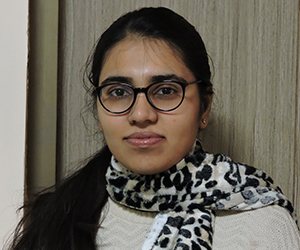
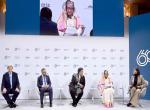
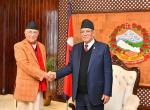
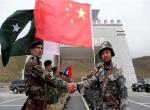
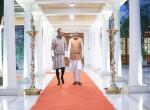
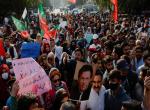
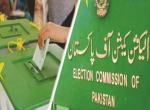
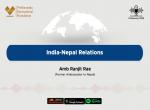
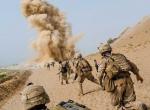
Post new comment